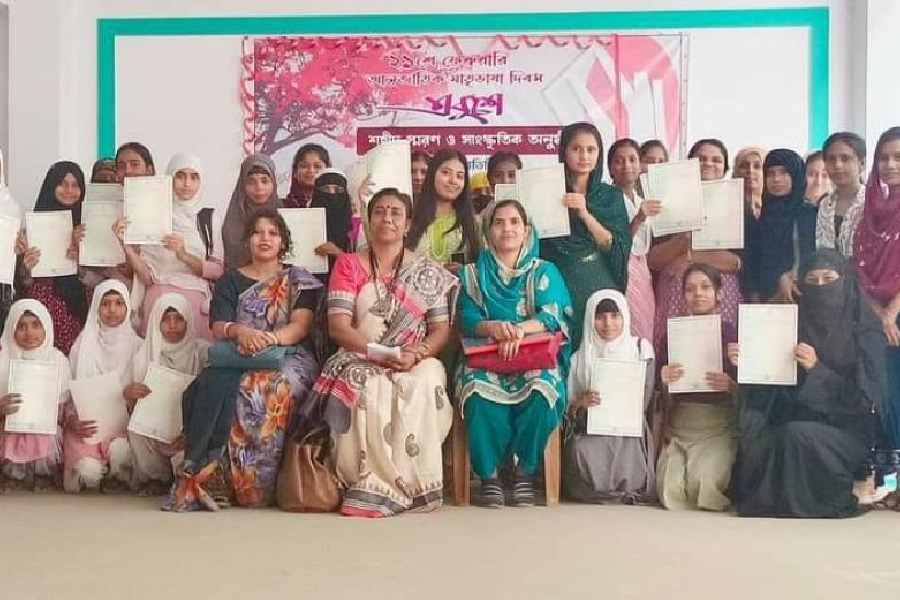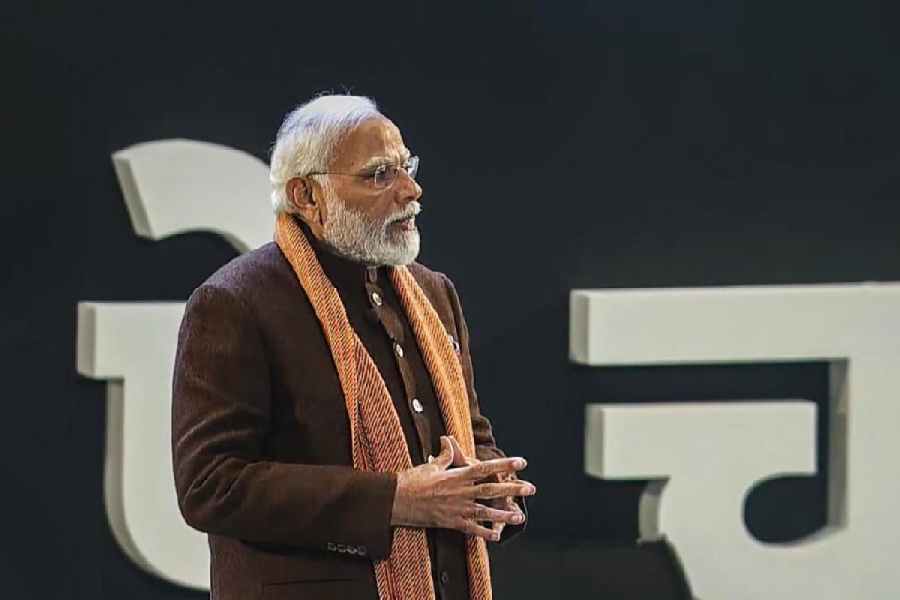A madrasa in Murshidabad sent out its first batch of higher secondary students and all 165 girls who appeared cleared the examination.
The school topper scored 92.6 per cent and 30 girls scored above 80 per cent.
Their stellar performance is a significant but small part of the story.
Every girl here fought poverty and resistance at home and, of course, proposals of early marriage, and continued studying.
Of the 235 students who enrolled in Class XI in 2022 at Debkunda Sk. Abdur Razzak Memorial Girls
High Madarsah in Murshidabad’s Beldanga block, the school and its teachers with relentless
effort could only make 165 of them write the exams.
The school lost many of the girls to marriage and poverty, the headmistress said.
“Many of them took admission in Class XI, but gradually we started losing them because their families thought that after Madhyamik they were of marriageable age. Some of the girls are told that they would be allowed to study after marriage, but that doesn’t happen in most cases,” said headmistress Murshida Khatun.
“At least 30 of the girls dropped out after Class XI. The challenge for us is to retain the girls,” she said.
The school started the higher secondary section so that girls who dropped out after Madhyamik because of the lack of a high school nearby would get the opportunity to study.
Their parents did not want to send the girls too far to study.
“The fact that we could send 165 students in our first batch and they passed the higher secondary exams is an achievement for us. We are hoping and expecting that of them, at least 50 would go for higher studies at the undergraduate level,” said Khatun.
Of the 165, as many as
70 were in the science stream. The rest studied humanities.
Most of the girls are first-generation learners.
The challenge was to see that they attend school every day or, at least, regularly.
Arshina Khatun, a Class XII examinee, had stopped coming to school for a prolonged period.
Upon enquiry, the school found out that her father was a migrant labourer in Kerala and her mother was in Calcutta. The teachers brought the girl back to school and she scored 80 per cent in HS.
Another student, Barsha Khatun, was upset and shared her plight with the teachers. Her parents were looking at a prospective groom. The teachers intervened to convince her parents not to get her married. Barsha scored 76.6 per cent in higher secondary.
“Of the 165, at least 20 per cent of our girls would have got married but we were able to stop that. When our girls are absent from school for about a week, we start asking about them and visit their homes,” said Samjida Khatun, who teaches history.
The school’s role is not confined to helping the good students.
“We had to see that all the girls, even those who are not academically strong, pass the exams. Those who are not good in studies are perhaps fighting a more fierce battle at home because their parents think that it is not worthwhile for them to go to school. That 100 per cent of them have passed the exams is therefore important to us,” the history teacher said.
For those who want to go to college, the school would try to arrange donors.
“There are instances where the parents want their girls to study but cannot afford it,” said Murshida Khatun.
For the girls, passing higher secondary means crossing a big hurdle, unlike in privileged homes where it is natural to do so.
“After higher secondary, the girls definitely look more determined and more mature. They understand that they should study further for their own good. As against this, the girls after Madhyamik can be moulded more easily by societal demands and they give up more easily,” said the headmistress.











